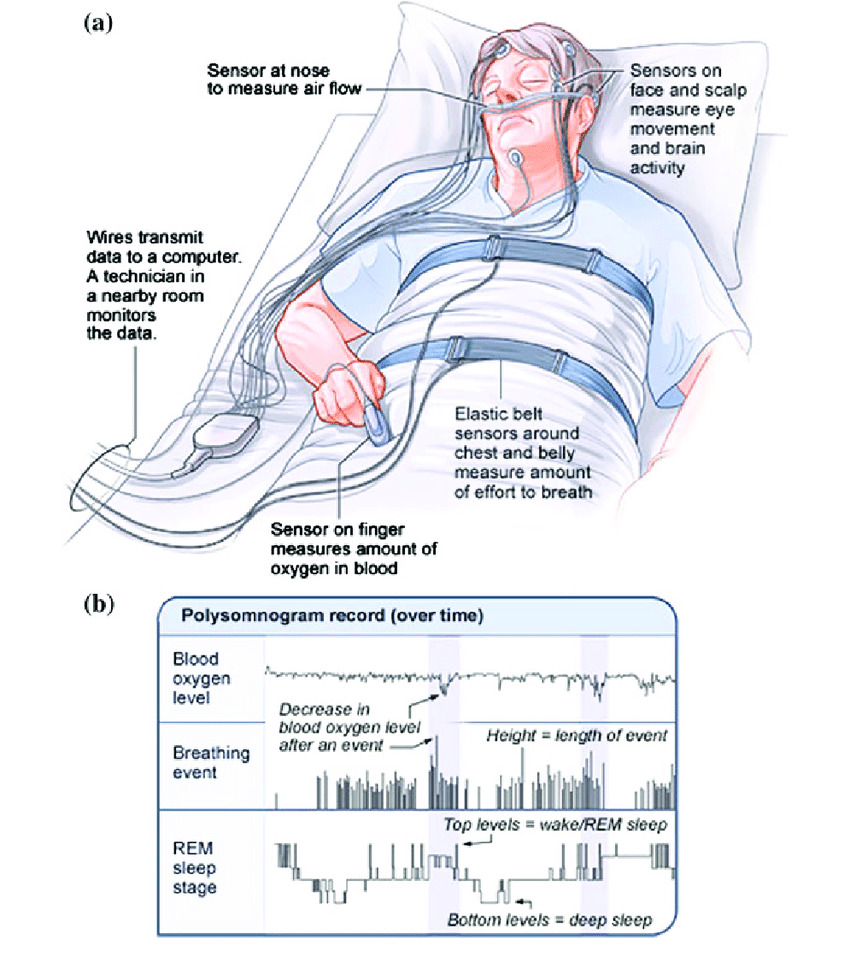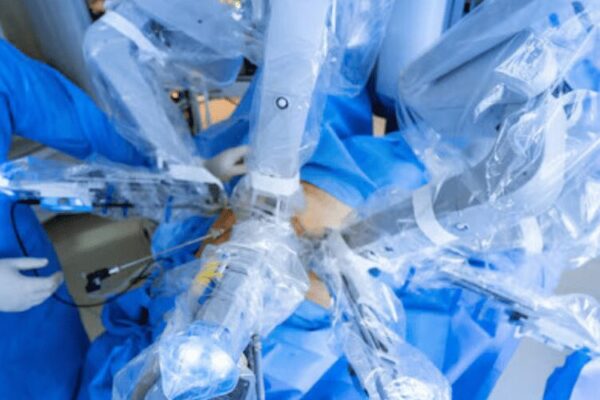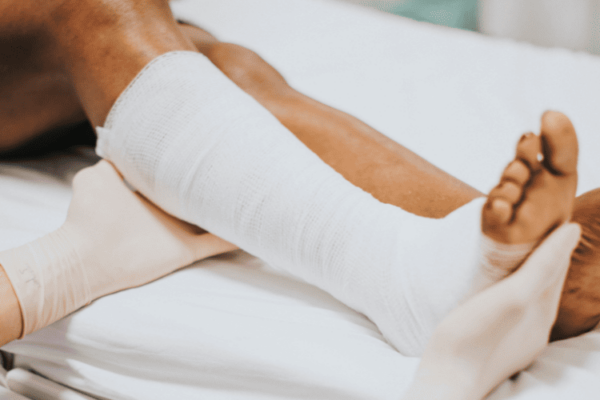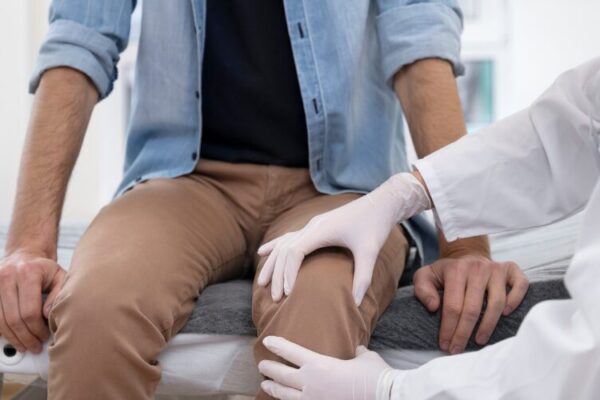
05 Apr Malaysian Sleep Study: What You Need to Know
Malaysian Sleep Study: What You Need to Know
By Island Hospital | Apr 5, 2024 12:00:00 PM
Are you struggling with sleepless nights and poor sleep quality? A sleep study could be the solution to your problems.
Sleep studies are used to diagnose sleep disorders such as sleep apnea and restless leg syndrome. These tests can be conducted at a hospital, sleep lab or in the comfort of your own home.
They assist doctors in understanding and providing effective treatments for your condition.
In conjunction with World Sleep Day, let’s delve into this complete guide to sleep studies. We’ll discuss the significance, process, and results of these tests.
What is a sleep study?
A sleep study or polysomnogram (PSG) is a painless, overnight exam that monitors your sleep.
Sleep studies are used to diagnose sleep disorders. Sleep studies are also used to assess the efficacy and patient’s response to the prescribed treatment for sleep disorders.
A sleep study will measure aspects such as brain activity, eye movements, oxygen levels in blood, heart rate, breathing, snoring and body movements.
For example, during sleep, an EEG tracks the sleep stages and the cycles of REM and non-REM (NREM) sleep throughout the night, aiming to detect any potential disruptions in sleeping patterns.
Here’s a recap of the basic recordings during a sleep study:
- Electroencephalography (EEG): To measure brain waves and detect abnormalities in brain activity.
- Electrooculogram (EOG): To record eye movements, helping to identify rapid eye movement (REM) and track sleep cycles.
- Electromyography (EMG): To record muscle activity to assess muscle tone and detect movement-related sleep disorders.
- Electrocardiogram (ECG): To record electrical activity of the heart to assess heart rate and rhythm during sleep.
- Respiratory Monitoring: To measure and record airflow, breathing patterns and blood oxygen level.
- Video Recordings: To capture visual footage of the individual during sleep, providing additional context and behavioural observations.
- Snore Microphone / Audio Recordings: To record snoring activity.

Polysomnogram – The placement of various sensors on the patient’s body (Source: ResearchGate).
Who needs a sleep study?
If you experience any of the following symptoms, your doctor may recommend a sleep study:
- Excessive snoring
- Daytime tiredness
- Difficulty falling and / or staying asleep
- Morning headaches
- Waking up early and unable to fall asleep again
Depression and a lack of concentration may also be signs for you to get a sleep study.
What can be diagnosed?
As mentioned earlier, a sleep study can diagnose sleep disorders. Early diagnosis is crucial for timely treatment and prevention.
Individuals with conditions such as hypertension and diabetes should be screened earlier as they are at increased risk for Obstructive Sleep Apnea (OSA).
Untreated sleep disordered breathing is related to potential life-threatening medical conditions such as cardiovascular, neurocognitive and metabolic disorders and their complications.
Sleep studies are used to diagnose a variety of sleep-related conditions such as:
| Sleep Disorder | Details |
|---|---|
| Sleep apnea | A disorder that disrupts breathing during sleep. It causes loud snoring, frequent awakening with choking and gasping for air. |
| Insomnia | A disorder that makes it difficult to fall and stay asleep at night. |
| Narcolepsy | A disorder that causes extreme tiredness in the daytime, despite enough sleep. It causes one to suddenly fall asleep during the day. |
| Restless leg syndrome | A disorder that causes uncomfortable sensations in the legs and a strong urge to move them when sitting or lying down. |
Sleep Study Procedure
Preparation for a Sleep Study
Before the sleep study, inform your doctor of your medication and supplement intake. Your doctor will recommend which ones you should or should not continue taking during the study period.
Examples of medicines include antihypertensive medicine, oral hypoglycemic agents (OHA), and insulin.
Prior to the test, you are not allowed to take sedatives, caffeine (e.g., coffee, carbonated drinks, tea, chocolate) and alcohol. You are also advised against smoking and vaping.
However, there are special circumstances which allow for the use of sedatives, so do consult your doctor for further information.
You should also avoid taking naps before the study, as it may interfere with your ability to fall asleep.
If you are doing an in-lab study, bring appropriate and comfortable sleepwear to the study. You may also bring your book and favourite pillow to help you fall asleep.
In-Lab Sleep Study
In-lab sleep studies are done in a hospital or sleep lab. Your testing will be done in a patient bedroom, where your sleep will be monitored throughout the night. Steps for an in-lab sleep study are described below:
Step 1: Registration for admission.
Step 2: Orientation provided by a sleep technician.
Step 3: Preparation for the test.
-
- During this stage, removable sensors are placed on your head and body.
- These sensors record physiological parameters such as brain activity, eye movement, heart rate, breathing effort and rate, oxygen levels and muscle movements.
Step 4: The sleep study proceeds for at least 6 hours.
Step 5: Discharge the following day.
Step 6: Data scoring and analysis conducted by a sleep technician.
Step 7: Interpretation and validation of results by medical professionals.
Your doctor will inform you of the results and any further steps. If the results are invalid, you may need to retake the sleep study (Repeat steps 1 to 7).
At-Home Sleep Study
An at-home sleep study is less comprehensive than an in-lab study as it involves less sensors. It typically only tracks breathing effort, airflow, snoring and oxygen saturation. The procedure for an at-home sleep study is as follows:
Step 1: Schedule an appointment with your healthcare provider.
-
- As a prescription is needed for an at-home sleep study test, consult and meet with your provider.
Step 2: Pick up your at-home sleep test kit.
-
- Hospital / Sleep lab staff will provide you with portable equipment and detailed instructions about the test.
Step 3: Undergo the test.
-
- Follow the instructions to put on the sensors.
- Sleep and wake up at your usual times.
Step 4: Return the equipment.
-
- Return the sleep study equipment to the hospital / sleep lab for analysis.
Step 5: Wait for results and consultation.
-
- After data have been analyzed and interpreted, your doctor or ENT specialist will discuss the results with you.
Although at-home sleep studies are insightful, it is advisable not to solely depend on their results when diagnosing sleep disorders.
This is due to the limitations of these studies, such as potential inaccuracies and inability to measure certain parameters effectively.
Discuss with your doctor to see if an at-home sleep study is right for you.
Sleep Study Results
The following sleep-related data will be presented:
-
- The time spent in each sleep stage
- The frequency of waking up
- Breathing abnormalities (Whether you stop / have trouble breathing)
- Absence / Presence of snoring
- Body position
- Limb movements
- Abnormal brain activity patterns
- Other unusual behaviours (e.g., sleep talking, sleep walking)
For an in-lab sleep study, hundreds of pages of data are generated for analysis. Therefore, it may take one to two weeks after the sleep study date to receive your results.
The data will be scored by a qualified sleep technologist and interpreted by a physician with expertise in clinical sleep physiology.
For an at-home sleep study, your healthcare provider will review the data collected.
If the data reveals that you have a sleep disorder, your provider will contact you and schedule further testing or treatments based on the results.
As the results provided by at-home sleep studies can be limited, an in-lab sleep study may be recommended for a comprehensive understanding of your sleep health.
Schedule an Appointment with Island Hospital
Island Hospital houses a team of experienced Ear, Nose, and Throat (ENT) specialists. We provide diagnosis, evaluation and treatment of a wide spectrum of disorders affecting the ears, nose and throat, as well as conditions impacting the head and neck.
We offer comprehensive sleep studies aimed at diagnosing sleep disorders. Our consultant ENT surgeons and consultant respiratory physicians then provide tailored treatments for the identified sleep-related disorders.
Our centre ensures a quality and comfortable experience throughout the entire process.
FAQs
Are sleep studies worth doing?
Yes, sleep studies are worth doing for diagnosing and treating sleep disorders so that sleep quality can be improved, ultimately enhancing general health and well-being.
Can I do a sleep study on my own?
Sleep studies can be done at home with instructions and specialized portable equipment provided by medical professionals. Be sure to consult your doctor whether it’s the best option for you.
At what age can you do a sleep study?
Sleep studies can be done at any age, from paediatric to elderly age group.
What if you can’t fall asleep during a sleep study?
If you can’t fall asleep, the technician may provide assistance or reschedule the test. However, this rarely happens as medical professionals state that even two hours of sleep is sufficient for the study.
Can I use my phone / watch TV during a sleep study?
It’s generally best to avoid phone use or watching TV during a sleep study to ensure accurate results.
What are the warning signs of sleep apnea?
Warning signs of sleep apnea include loud snoring, daytime tiredness, pauses in breathing while sleeping and waking up gasping or choking.













